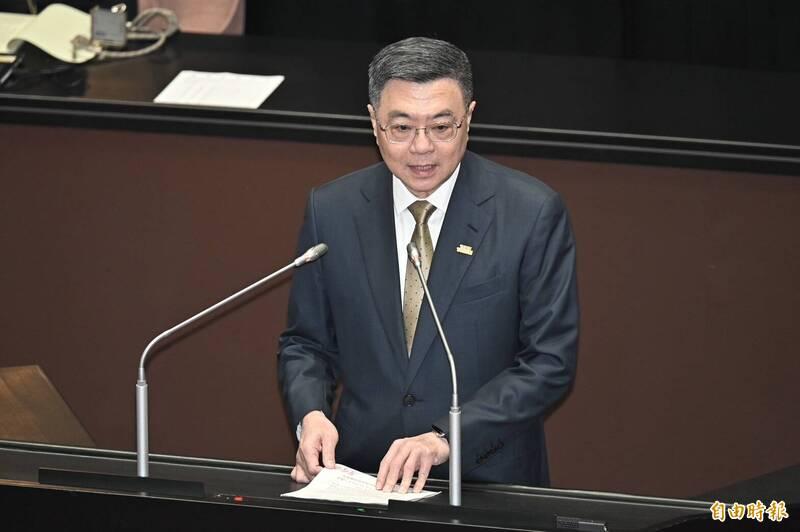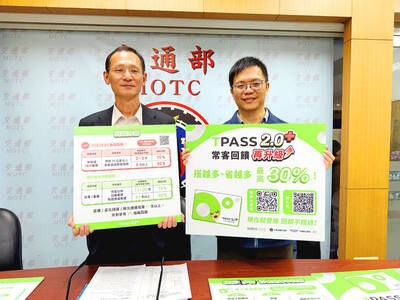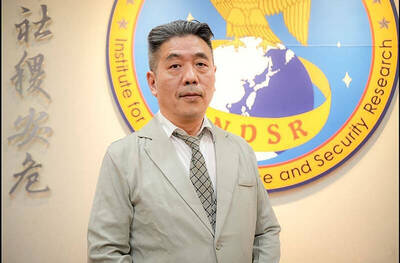About half of the respondents to a Taiwan Public Opinion Foundation (TPOF) survey expressed support for the Executive Yuan’s proposed NT$88-billion (US$2.69 billion) package as a response to US President Donald Trump’s tariffs, the TPOF said today.
The survey found that 49.4 percent of survey respondents approved of the Executive Yuan’s plan, while 39.2 percent did not, in addition to 43.9 percent expressing support for President William Lai’s (賴清德) stance towards the US tariffs compared to 40.8 percent disapproving.
When asked about Lai’s announcement on Sunday that Taiwan would not seek retaliatory tariffs on US goods or withdraw private investments in the US, 14.3 percent strongly agreed with his decision, 29.6 percent somewhat agreed, 20.4 percent somewhat disagreed and 20.4 percent strongly disagreed.

Photo: Tu Chien-jung, Taipei Times
Twelve percent of respondents had no opinion and 3.2 percent did not know or answer.
When asked about the Executive Yuan’s NT$88-billion plan to support Taiwan’s industrial and agricultural sectors, 12.8 percent strongly approved, 36.6 percent somewhat approved, 23.7 percent somewhat disapproved and 15.5 percent strongly disapproved, TPOF said.
Meanwhile, 8.1 percent had no opinion and 3.5 percent did not know or refused to answer, TPOF added.
The poll was conducted between Monday and Wednesday, with 1,080 respondents, aged 20 and above nationwide, of which 70 percent were reached via landline and 30 percent through cell phones, TPOF said.
In related news, labor rights groups held a news conference at the Executive Yuan today to announce their support for industry subsidies that would prevent layoffs.
The Ministry of Economic Affairs and the Ministry of Finance, with support from the Ministry of Labor, should improve the government’s auditing process of corporate subsidies, Ho Cheng-chia (何政家), chairman of Taiwan Workers United, said.
If subsidized companies lay off employees or force them to take unpaid leave, the government should revoke the subsidies to ensure the proposed subsidies are not exploited, Ho said.
The Ministry of Labor should convene a meeting on stabilization measures for employees as soon as possible and provide emergency relief loans for those affected by the new tariffs, Ho said.
Meanwhile, the Chinese Nationalist Party (KMT) yesterday demanded that the ruling Democratic Progressive Party (DPP) raise the budget for the government's bailout plans from NT$88 billion (US$2.68 billion) to NT$200 billion to stabilize financial markets and provide low-interest loans and tax benefits for industry, in light of the potential economic impact from tariffs imposed by the US.
KMT Chairman Eric Chu (朱立倫) also said the NT$500-billion National Financial Stabilization Fund to stabilize the local stock market should be increased as it is no longer sufficient, partly due to the stock market having undergone a significant increase since the fund was established.
The government should immediately introduce a visa-waiver program to allow international visitors to spend up to a month in Taiwan visa-free, Chu said.
Furthermore, the government should resume accepting applications from Chinese tour groups to visit Taiwan, something it has been unable to get China to agree to since the COVID-19 pandemic started to ease, he said.
It should issue NT$10,000 cash handouts to the public as an economic stimulus to boost internal demand, he added.
Premier Cho Jung-tai (卓榮泰) today said the government would comprehensively review further steps to raise the budget to ensure effective assistance would be provided to affected industries and employees.
Additional reporting by Chen Cheng-yu and Fion Khan

Taipei and Kaohsiung have extended an open invitation to Japanese pop star Ayumi Hamasaki after Chinese authorities abruptly canceled her scheduled concert in Shanghai. Hamasaki, 47, had been slated to perform on Saturday before organizers pulled the show at the last minute, citing “force majeure,” a move widely viewed as retaliation for Japanese Prime Minister Sanae Takaichi’s recent remark that a Chinese attack on Taiwan could draw a military response from Tokyo. Taipei Mayor Chiang Wan-an (蔣萬安) yesterday said the city “very much welcomes” Hamasaki’s return and would continue to “surprise” her. Hamasaki, who has a large global fan base, including

Starting next month, people who signed up for the TPass 2.0 program can receive a 15 percent rebate for trips on mid to long-distance freeway buses or on buses headed to the east coast twice every month, the Highway Bureau said. Bureau Director-General Lin Fu-shan (林福山) said the government started TPass 2.0 to offer rebates to frequent riders of public transportation, or people who use city buses, highway buses, trains or MRTs at least 11 times per month. As of Nov. 12, 265,000 people have registered for TPass 2.0, and about 16.56 million trips between February and September qualified for

The year 2027 is regarded as the year China would likely gain the capability to invade Taiwan, not the year it would launch an invasion, Taiwanese defense experts said yesterday. The experts made the remarks after President William Lai (賴清德) told a news conference on Wednesday that his administration would introduce a NT$1.25 trillion (US$39.8 billion) special defense budget bill to boost Taiwan’s overall defense posture over the next eight years. Lai said that Beijing aims for military unification of Taiwan by 2027. The Presidential Office later clarified that what Lai meant was that China’s goal is to “prepare for military unification

HOW RUDE: Joe Biden’s Indo-Pacific defense chief condemned China’s response to Takaichi’s remarks as inappropriate and heavy-handed, while praising Japan’s nerve A former US defense official under former US president Joe Biden has voiced support for Japanese Prime Minister Sanae Takaichi for her remarks suggesting that Japan could help defend Taiwan, while describing Beijing’s response as “inappropriate.” Ely Ratner, who served as assistant secretary of defense for Indo-Pacific security affairs from 2021 to this year, said in a CNA interview that Takaichi’s comments on Taiwan simply reflected Japan’s position and stance on Taiwan. On Nov. 7, the Japanese prime minister commented in a parliamentary session that a Chinese attack on Taiwan could constitute “a situation threatening Japan’s survival” that could trigger a military